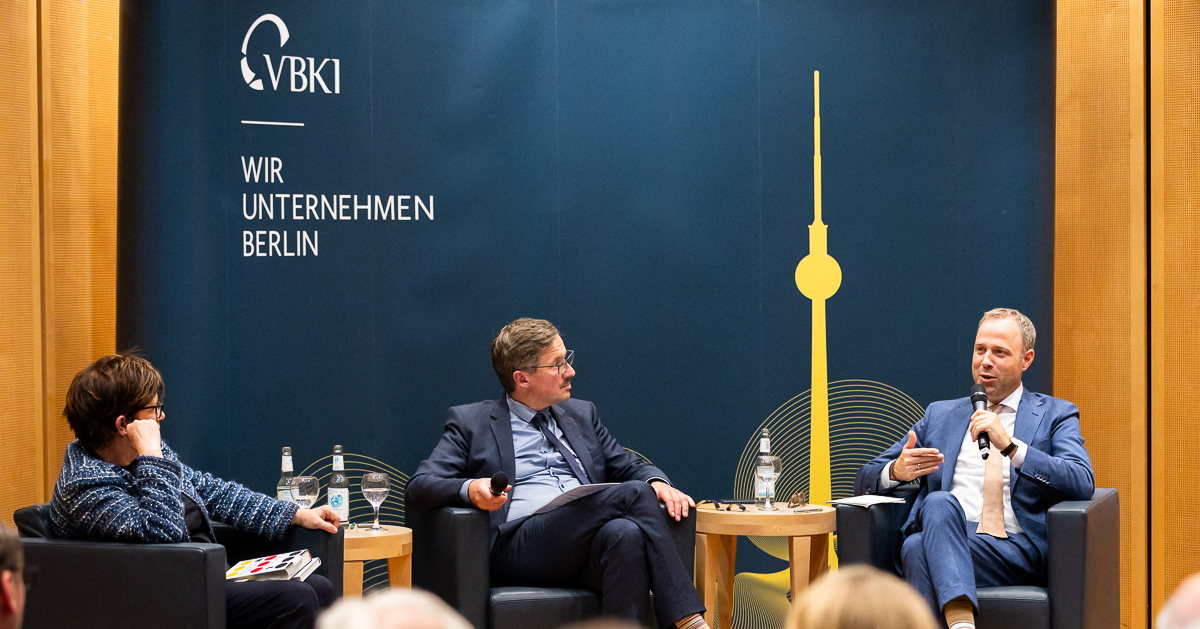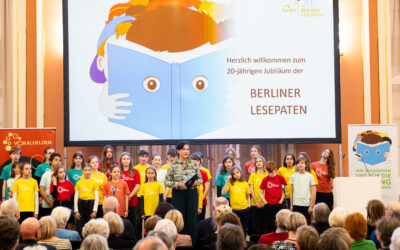"We know too little about each other"
What makes East Germany tick? Discussion with Dr. Ursula Weidenfeld and Mario Czaja
Saxony and Thuringia have already voted, while Brandenburg has yet to go to the polls: We took the opportunity to work with two experts on the East German "soul" to investigate the underlying reasons for voting behavior in the east of the republic. Both the journalist Dr. Ursula Weidenfeld and Mario Czaja, Member of the Bundestag, former Secretary General of the CDU and former Senator for Health in Berlin, have written down their thoughts on the situation in the East in recently published books.
Ms. Weidenfeld, author of "Das doppelte Deutschland", referred to the experiences of difference that, interestingly, still persist in the East almost 35 years after German reunification and are even increasing in the third post-reunification generation. One of the reasons: "We know too little about each other." The political and cultural gaze in the 20th and 21st centuries was always directed towards the West, both in the Federal Republic and in the GDR. In Bonn in particular, interest in the reunification of the two German states had been limited since 1953; Chancellor Konrad Adenauer had to be persuaded to fly to Berlin to commemorate the victims in the year of the June 17 Uprising. All in all, the idea of reunification had caused more fear than hope among leading politicians in the West for years. This Western ignorance has led to an underlying resentment in East Germany that persists to this day.



At the age of 14, Mario Czaja witnessed the fall of the Berlin Wall in East Berlin - and the far-reaching transformations that followed. "We experienced a vote with our feet back then - well beyond German reunification," says the author of "How the East saved Germany". A total of 1.8 million people - mostly women and well-educated young people - left the former GDR and went to the West. A historically unique bloodletting that led to profound upheavals both in the demographics of the East and in its intellectual disposition.
Both authors attribute the voting behavior to deep-seated wounds as a result of the West's disinterest in the East. According to Czaja, GDR history is still not mentioned in schools today, and East Germans are severely underrepresented in top positions in Germany. "Imagine that in Bavaria." Interestingly, these negative experiences led to a kind of wagon-castle mentality in the East, which can be seen in the formation of identity. "In the east of the republic, you don't feel German or European first, nor do you feel Saxon or Thuringian". The first identity is - East German.
The subsequent discussion, moderated by Daniel Friedrich Sturm, head of the Tagesspiegel's capital city office, also addressed the question of why the experiences of difference described above are not reflected in the large number of votes for the AfD. Czaja sees this as an outlet to regain a form of self-efficacy. Both Weidenfeld and Czaja referred to the enormous grassroots democratic experience that many East Germans had at the time of reunification - and which was subsequently replaced by numerous experiences of powerlessness. There is a widespread feeling in the East that they have no chance from the outset - this is reflected, for example, in the comparatively low participation rate in scholarship programs. At the same time, politicians have to put up with the accusation that they have given in to the "arrogance of power". Czaja self-critically argues that the CDU's strategy of "asymmetrical voter demobilization" is partly to blame for the current situation.
Impressions
To the picture gallery: Please click here>
You might also be interested in
Happy Birthday, BERLINER LESEPATEN!
Ceremony at the Rotes Rathaus - our educational project celebrates its 20th anniversary
More than 3 million volunteer hours of support
A milestone birthday: BERLINER LESEPATEN have been inspiring the joy of reading for 20 years
Kaweh Niroomand receives the Order of Merit of the Federal Republic of Germany
Long-standing VBKI Executive Committee member honored for outstanding commitment









